LEADING IN TIMES OF CRISIS
While all six Leader SEL competencies are essential to leaders, crisis moments demand both clarity about what is important and the capacity to nurture connection and community to bring comfort. These skills are with self-awareness, trustworthiness, and deep empathy and consideration of our most vulnerable. We’ve curated tools from our Leader SEL Toolkit, and identified some new ones, to bring encouragement, insight, and support to education and community leaders as they step into the vital role they need to play in guiding us through the challenges and opportunities of the COVID-19 pandemic.
ACTIONABLE SELF-REFLECTION
Your own calm about what is known and unknown is the place from which you lead; in times of crisis, people are watching for leaders to signal not that we will avoid hardship, but that we are ready and able to experience hardship and emerge more or less intact on the other side.
CULTIVATE TRUSTWORTHINESS
In times of crisis, the degree to which people feel you are knowledgeable/capable, have their best interests at heart, and will follow through on your word is the foundation of leadership. These are the three conditions that makeup trustworthiness. If you don’t already have it, a crisis is not likely the time you’ll build it, but it can be lost, so consciousness of how to reinforce trust and nurture trustworthiness is critical.
EQUITY CONSCIOUSNESS
Crisis impacts everyone, but resources such as transportation, reliable childcare, access to healthcare and medication, flexible working arrangements, and food security can make the difference between difficulty and devastation for children and families. School leaders are uniquely positioned with a pandemic like COVID-19 to lead proactive support to meet the needs of vulnerable populations within the community, buffering or mitigating the extent of damage.
ADDITIONAL RESOURCES
LEARN
In Fall 2018, GLISI launched a new research endeavor to understand the extent to which school and district leaders in Georgia value social and emotional learning for themselves and provides recommendations for school leaders, district leaders, and policymakers for building education leaders’ social and emotional competencies.
Ideas to get started with creating a strong schoolwide SEL climate for adults, from ASCD
PRACTICE
Follow these simple ideas for creating a stronger network, from Edutopia
EXTEND
Resources from CASEL designed for district and school leaders to lead Adult SEL PL
An Action Guide for School Leadership Teams so that it reads: How SEL can enhance academic performance, and how to weave both social-emotional development and equity into every aspect of school, from The Aspen Institute
This report from The Aspen Institute "seeks to accelerate and strengthen efforts to support the whole learner in local communities through recommendations for researchers, educators, and policymakers"

